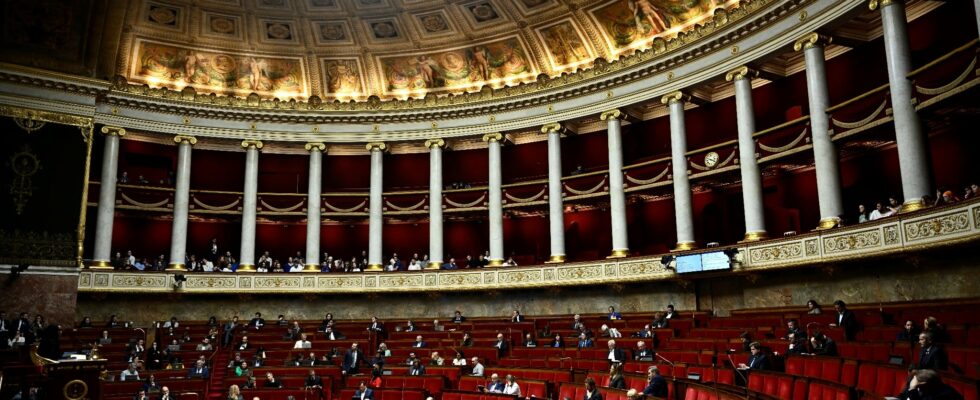The exchanges were lively, on the evening of Thursday October 24 in the Assembly, the left and the RN accusing government groups of “obstruction” by having tabled numerous amendments on the 2025 budget. A situation which could ultimately lead to a transmission of the text to the Senate without the Assembly having been able to decide.
“It has never been seen in a budget that the government’s supporting deputies table 45% of the amendments,” attacked the president of the LFI group Mathilde Panot. “Mr. Minister, you must have links with the parliamentary groups that support you, and you must at least ask them to remove these amendments (to) finish this discussion,” she told Budget Minister Laurent Saint -Martin. MP Jean-Philippe Tanguy (RN) criticized the MPs from the government camp for “permanently obstructing”.
One of the fears of the deputies is that the government groups will deliberately allow the debates to continue, in order to fall within the scope of article 47 of the Constitution, according to which if the Assembly cannot decide at first reading on a finance bill after 40 days (November 21), the government submits it to the Senate – where Michel Barnier has a majority, which would allow him to avoid a rejection of his text in the Assembly, and even use 49.3.
“Exceptional” circumstances
By using article 47, the government is “using the equivalent of a silent 49.3”, accused MP Danielle Simonnet (Ecologist and Social group), in an allusion to this now famous article of the Constitution , which allows a text to be adopted without a vote. Michel Barnier’s government opened the way for the use of 49.3 on Wednesday in the Council of Ministers. But the decision has not been made to use it, assures a government source.
In total, more than 3,650 amendments were tabled by deputies on the “revenue” part of the finance bill, including around 45% by the LR-macronie “common base”, 20% by the right, according to the services of the Assembly. On behalf of the Republican Right, Véronique Louwagie recognized that her group had “tabled a lot of amendments”, but stressed that this was in the “culture” of the right, and that the circumstances were “exceptional” with a government appointed late, just a few weeks before the budget debate. In response to criticism, Laurent Saint-Martin said he would like “to have an end to the debates this weekend” and said he would be available “as much as necessary”.
The NFP withdrew a quarter of its amendments
Earlier in the day, the four groups of the New Popular Front announced their intention to withdraw a quarter of their amendments, or around 270, to go to the vote. EPR, chaired by Gabriel Attal, for its part announced that it was withdrawing “around a hundred amendments”. But the entourage of DR president Laurent Wauquiez interviewed by AFP indicated that it was “not expected at this stage” that the right would follow this example. Same thing at Horizons, which considers itself to have been virtuous. “We’re looking,” said the MoDem.
As of around 10:30 p.m. on Thursday, only 434 amendments had been discussed, with some 2,500 still to be discussed. The examination of the text was to end on Friday evening, but it will continue on Saturday, the conference of presidents decided on Thursday. And if the debates are not finished on Saturday, they will resume on November 5, according to a parliamentary source. A formal vote is theoretically scheduled for Tuesday.
The government coalition has also been the subject of numerous criticisms from the oppositions since Monday due to its absenteeism in the hemicycle. “There are 18 deputies this evening to support this budget,” growled RN deputy Sébastien Chenu. “And I tell you, if it were not for the 60, 80 or 100 RN and UDR deputies this evening, France would collapse under the taxes of France Insoumise […] So in reality, we are saving the savings of the French […] by our presence, at the moment when you leave to trigger a 49.3, because you do not even assume this shameful budget”, he thundered.
If the government copy is reworked too much, and there is indeed a vote, the government camp could also vote against the text, as in committee, where it criticized a “fiscal butchery”. In this case, it would be up to the Senate to take over the government’s copy, before a possible joint committee.
